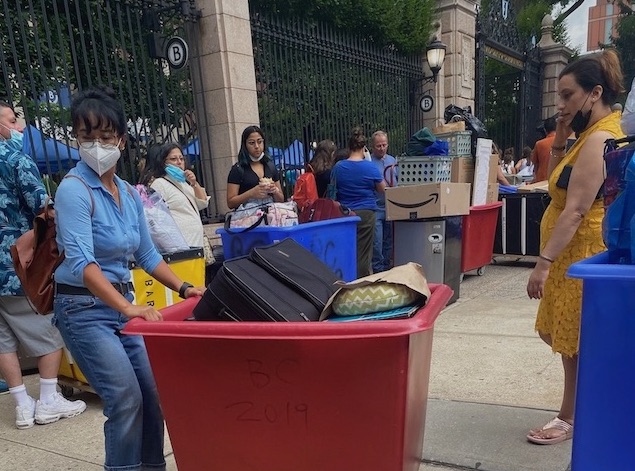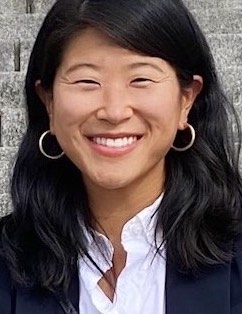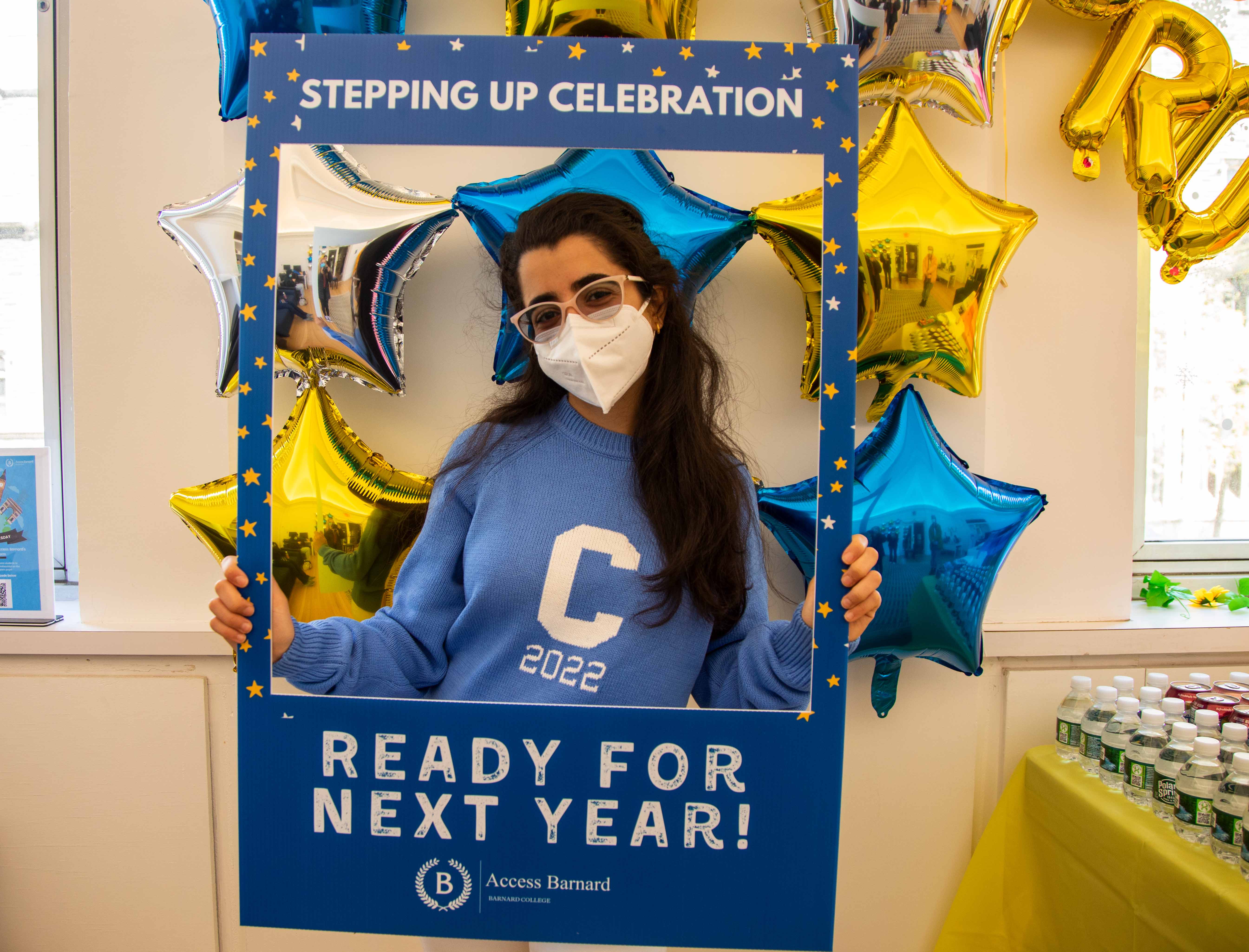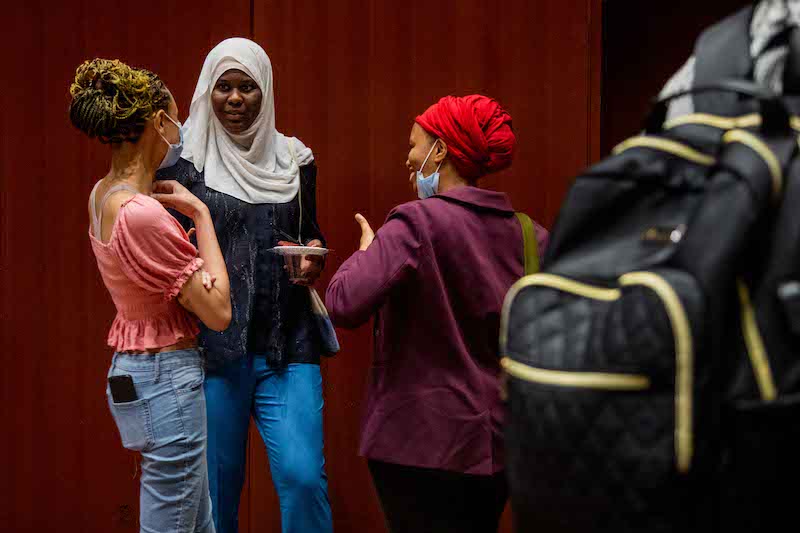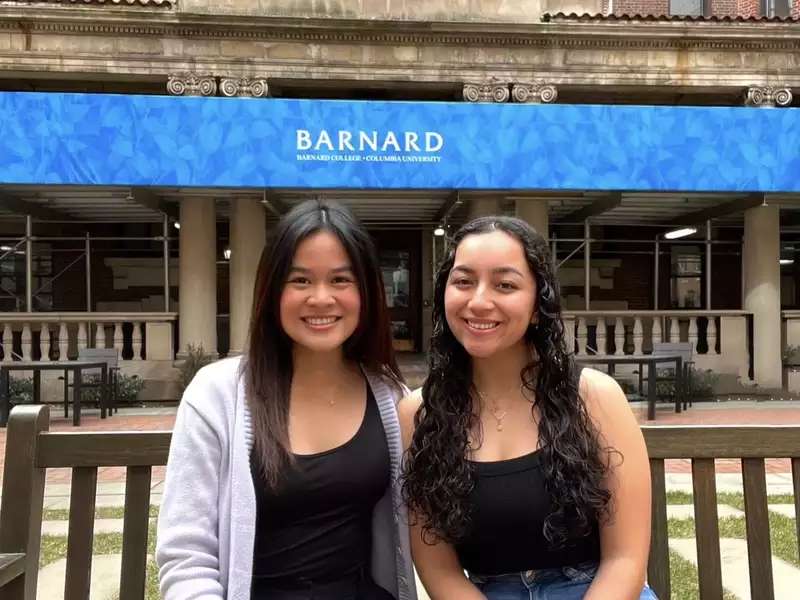The summer before Mariam Sikiru ’25 entered Barnard as a first-year, she attended the Access Barnard Pre-Orientation Program (Pre-O). The experience eased her mind and her transition into college life that fall.
“The [Pre-Orientation] TAs helped me understand that they were there for me, not only in biology and chemistry tutoring during our two academic weeks but also in what classes to choose and how to set my schedule. I still text them to this day for guidance,” said Sikiru. “[I learned that] even if people are in different class years or classes, you can lift each other up through your academic transitions. This, in turn, inspired me to help others. I am now a peer mentor in the Access Barnard Peer Mentoring Program.”
Sikiru’s experience — going from uncertain mentee to self-assured mentor — is one of hundreds and underscores the power of the program and of Access Barnard, the College’s premier resource to support students who identify as first-generation, low-income, and/or international. As robust as Pre-Orientation is, Katie Hyon, who joined Access Barnard this year as executive director, saw an opportunity to build an even more powerful framework for first-year students. This month, Access Barnard launched two new initiatives: the Summer Transition Series (STS) and the First-Year Access Barnard (FAB) program.
The Summer Transition Series was a direct response to feedback from members of the Class of 2026 who said they felt burned out by last summer’s student orientation — it was too much information to absorb in too short of time. Through the Summer Transition Series, Access Barnard will provide digestible doses of information and resources to incoming classes to better prepare them for the upcoming academic year. This will include a series of webinars, online meet and greets with other first-year and transfer students, digital publications, emails, and social media content. The goal is to help students set clear expectations, begin planning proactively for life on campus, and provide early exposure to critical elements of the first-year experience.
As you build your village, as you build your support system and your network, we want to be a part of that. We want to support and empower you to have the autonomy to tackle all of these things because you deserve your spot here as much as anybody else.
FAB is a pilot program that will accept 30 students in its first year. Students will be selected based on their level of participation during Pre-Orientation. The program will strive to build a community of engaged first-year students who are fully invested in Access Barnard by offering several touch points throughout the year.
“FAB will include a Success Workshop Series, dedicated advising, and a FAB Involvement Passport [for students to use to] get involved, attend events, earn stamps, and win prizes at the end of the year,” said Hyon. “[There will also be] a FAB Retreat — for the cohort to build community and escape from campus, allowing for deeper reflection — as well as some exclusive events just for the FAB cohort.”
Taken together with the traditional Pre-Orientation program offerings, these new initiatives are designed to better prepare and strengthen students to navigate Barnard’s academic rigor, new social situations, and everything in between.
"At Barnard, particularly for Access Barnard’s three populations, we wanted to apply specific mindful, intentional community-building to cultivate a sense of belonging from the very start,” Hyon explained.
A cornerstone of the Access Barnard ethos is being a welcoming home base that honors the origin story of every student, from the moment they embark upon their collegiate journey until they graduate.
“We want Access Barnard to feel like a community that is inclusive and accepting of you in all of your forms, to be sure that you are celebrated for your background, back story, and identity,” said Hyon. “We are not a one-stop shop; we are a first stop. As you build your village, as you build your support system and your network, we want to be a part of that. We want to support and empower you to have the autonomy to tackle all of these things because you deserve your spot here as much as anybody else.”
